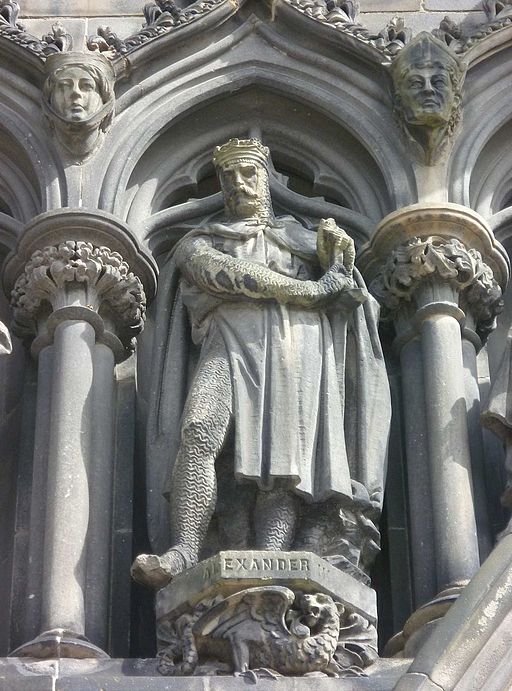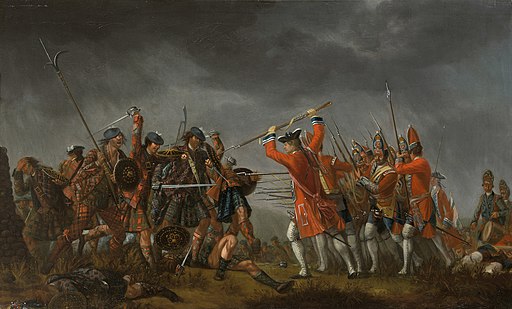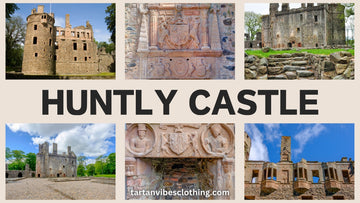Unraveling the Legacy of Clan MacDonald: A Historic Journey
by Teejay Smith on Feb 01, 2024
Table of Content
Introduction to Clan MacDonald
Clan MacDonald (Clan Donald or Clan MacDonell)is the oldest and largest of all Scottish clans. For nearly 400 years, Clan Donald ruled the west highlands and the Hebrides. The MacDonalds were powerful landowners who held extensive territories in the west of Scotland, and they played a major role in the country's politics and military affairs.
The clan’s eight main branches are: Antrim, Ardnamurchan, Clanranald, Duunyveg and the Glens, Glencoe, Glengarry, Keppoch and Sleat.
MacDonald Clan Crest and Motto
Gaelic Name: MacDhomhnuill
Crest: On a crest coronet Or, a hand in armour fessways couped at the elbow Proper holding a cross crosslet fitchée Gules
Motto: Per mare per terras (By sea and by land)
Origin of Name: Gaelic, Domhnull (World ruler)
Badge: Heather
Lands: The Western Isles
Historic Seat: Finlaggan Castle, Islay
Clan Chief: The Rt. Hon. The Lord MacDonald

The MacDonald Clan Crest features a dexter hand holding a cross, symbolizing the clan's deep-rooted connection to Christianity and their role as defenders of the faith. Above the crest sits a chieftain's helmet adorned with a crown, signifying the noble status and leadership of the clan. The clan motto, "Per Mare Per Terras" meaning "By Sea and By Land," reflects the adventurous spirit and resilience of the MacDonalds, highlighting their prowess as seafarers and warriors who navigated both the tumultuous seas and rugged terrain of Scotland with courage and determination.
MacDonald Clan History

Clan Donald's Rise and Influence (1100s-1400s)
Under Celtic rule, Clan Donald was organized into branches, each headed by a paternal figure who was a descendant of Donald. Initially, the clan's Kingdom of the Isles rivaled the Scottish Crown until its recognition as the Lordship of the Isles in 1263. Before this, Clan Donald technically owed allegiance to Haakon IV, King of Norway, until Alexander III of Scotland prevailed over the Norwegian king. Notably, Angus Og, Donald's grandson and clan chief, earned favor with King Robert Bruce, aiding him during the pivotal Battle of Bannockburn in 1314. The clan's allegiance secured them a prominent position within the Scottish army and established their Islay stronghold as a hub for Celtic governance, known as the Council of the Isles.
Clan Donald's Division and Decline (1400s-1700s)
The strength of Clan Donald waned in the 1400s due to pivotal battles and the loss of their Lord of the Isles title, ultimately transferring power to rival factions within Scotland. The title of Lord of the Isles was forfeited in 1493, passing to the heir of the Scottish throne. Internal divisions within Clan Donald, stemming from differing alliances, religious affiliations, and geographical disparities, weakened the clan further. The acceptance of Crown charters by various Clan Donald branches perpetuated division and marginalized the clan's influence, exacerbated by tensions surrounding Catholicism.
Key Battles and Conflicts: Internal Strife and External Aggression
-
The Battle of Bloody Bay (sometime between 1480-1483): Notable for being one of Scotland's most significant naval battles, this conflict pitted father against son as the Lord of the Isles, John MacDonald, faced rebellion from his own son, Angus Og. The clash, involving Clan MacDonald factions, resulted in Angus's victory but significantly weakened the clan's naval fleet, ultimately contributing to its demise.
-
The Eigg Massacre (1577): A grim episode where the entire population of Eigg was annihilated by the MacLeods, retaliating against the MacDonalds for banishing three of their kin. The MacLeods suffocated over 350 MacDonalds in a cave, symbolizing the escalating tensions and brutality between rival clans.
-
Battle in a Church (1578): Dubbed the Battle of the Spoiling of the Dyke, this conflict between the MacLeods and MacDonalds unfolded within a church on Skye, resulting in devastating casualties. The MacDonalds' attempt to ambush the MacLeods led to a tragic outcome, illustrating the fierce animosity and violence prevailing between the clans.
-
The Massacre of Glencoe (1692): Infamous for its treachery, this event saw the Campbell soldiers, exploiting hospitality, perpetrate the massacre of MacDonalds in Glencoe, following a failed oath-taking ceremony. The Crown's decree led to the slaughter of 38 MacDonalds, with further casualties from ensuing chaos and exposure.
Involvement in Jacobite Uprisings and Emigration (18th-19th Century)
Clan Donald, particularly the Clanranald MacDonalds, played significant roles in the Jacobite Uprisings of 1715 and 1745. Bonnie Prince Charlie's landing in Clanranald territory marked a pivotal moment in the latter uprising, culminating in the decisive Battle of Culloden. Subsequently, Clan Donald witnessed mass emigration, alongside millions of Scots, in the aftermath of Culloden, seeking new lives in North America and beyond.
📜 Please also see the history at http://www.clandonald.org
The MacDonald Tartan
The MacDonald Clan Tartan, renowned for its striking patterns and rich colors, holds profound significance within the clan. Adorned in various iterations of the tartan, MacDonalds across the globe proudly display their heritage and solidarity. Whether donning the traditional MacDonald Clan Plaid or the modern MacDonald Clan Tartan, clan members evoke a sense of kinship and pride. As with other Scottish clan tartans, the MacDonald tartan serves as a visual representation of the clan's identity and history, intertwining with the broader tradition of Scottish tartans by clan. From ceremonial occasions to everyday wear, the MacDonald tartan remains a cherished emblem of clan allegiance and cultural heritage, resonating with generations of MacDonalds and enthusiasts alike.
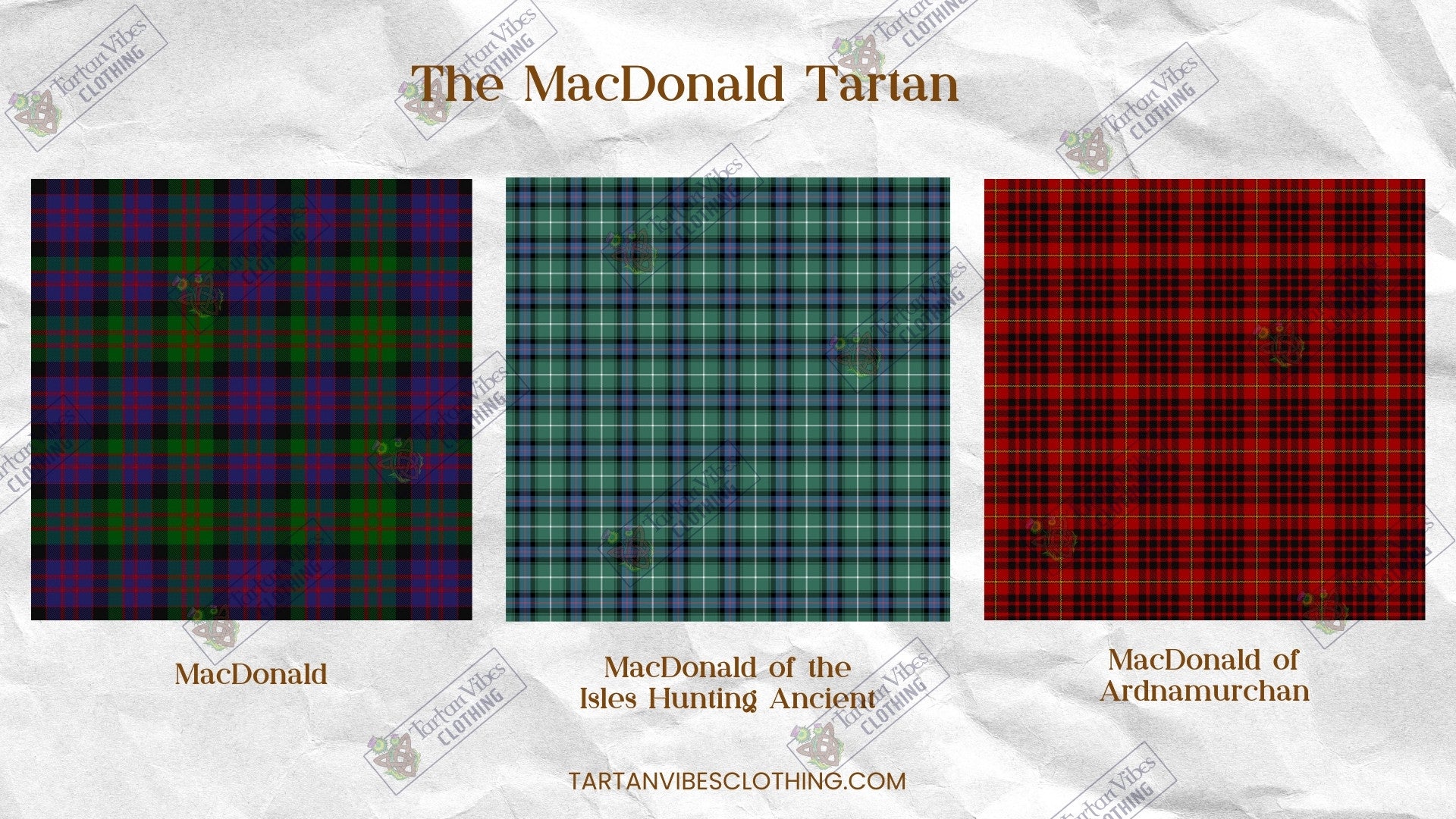
Clan MacDonald castles
- Finlaggan Castle: Situated on an island in Loch Finlaggan, on the Isle of Islay, it served as the residence of the chief of Clan Donald, the Lord of the Isles.
-
Armadale Castle: Constructed in 1815 on the Isle of Skye, it now hosts the Clan Donald Centre and the Museum of the Isles, offering insights into the clan's heritage and culture.
-
Knock Castle: Located on the Isle of Skye, this castle, now in ruins, stands as a testament to the Macdonald lineage.
-
Duntulm Castle: Another ruin on the Isle of Skye, Duntulm Castle once held significance as a MacDonald stronghold.
-
Aros Castle: Found on the Isle of Mull, Aros Castle now lies in ruins, reflecting the historical presence of Clan MacDonald in the region.
-
Claig Castle: Nestled on the Isle of Jura, Claig Castle, though now dilapidated, bears the marks of MacDonald occupation.
-
Kildonan Castle: Positioned on the Isle of Arran, Kildonan Castle, now in ruins, was once a strategic MacDonald stronghold.
-
Ardtornish Castle: Located on the Morvern peninsula, Ardtornish Castle stands as a remnant of MacDonald power, now a haunting ruin.
-
Dunaverty Castle: Off the coast of Kintyre, Dunaverty Castle, also known as Blood Rock, witnessed the tragic Dunaverty Massacre, exemplifying the tumultuous history of Clan Donald.
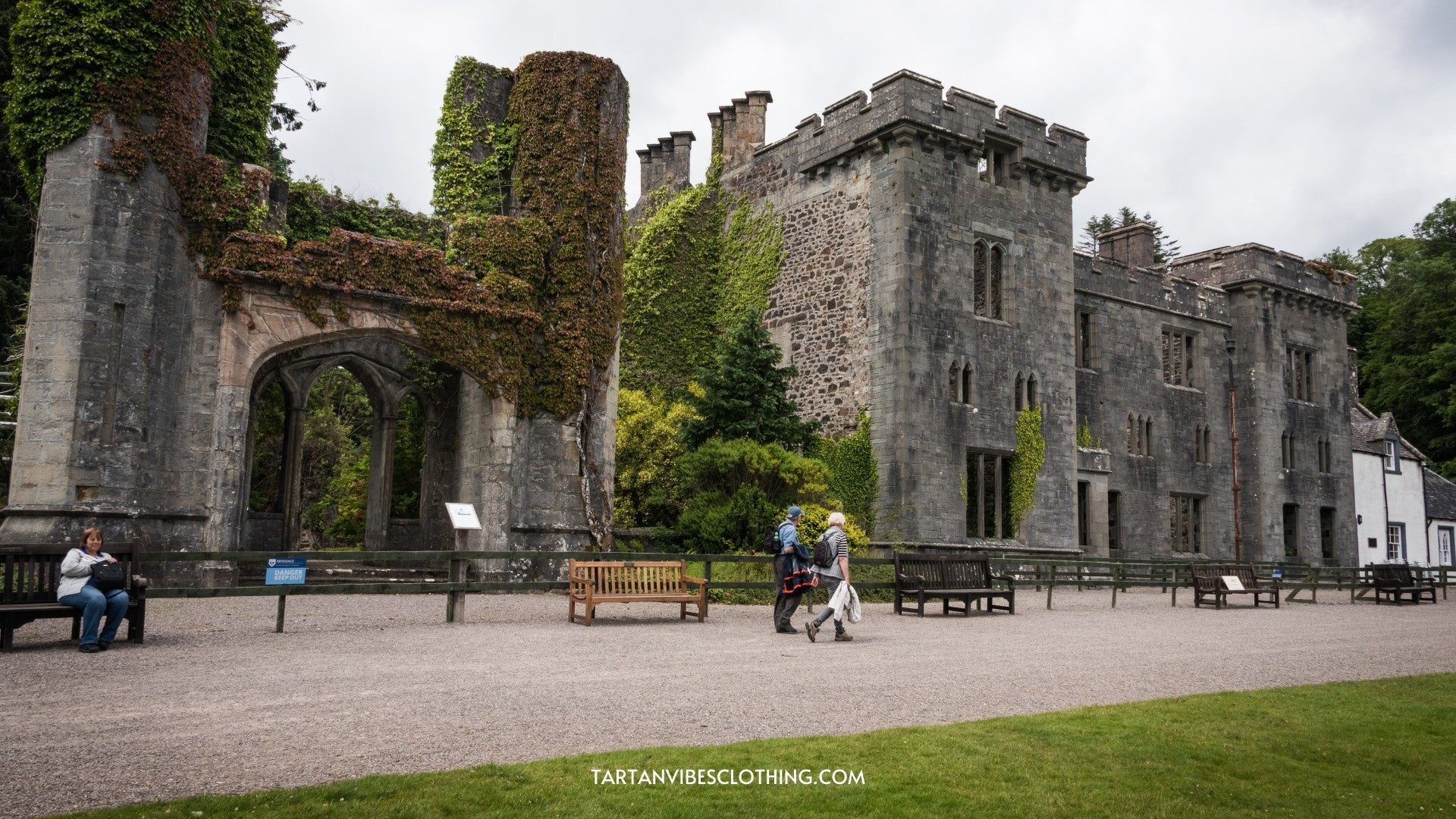
Gaelic Language and Clan MacDonald
The Gaelic language played a central role in the clan's culture. Explore how Clan MacDonald contributed to the preservation and promotion of Gaelic, ensuring its survival as a vital part of Scottish heritage.
- Language of Communication: Gaelic served as the primary language of communication within Clan MacDonald. Through daily interactions, storytelling, and familial bonds, Gaelic was perpetuated among clan members, fostering a strong sense of linguistic identity.
- Cultural Patronage: Clan MacDonald played a pivotal role in patronizing Gaelic literature, poetry, and music. Chiefs and prominent clan members often supported Gaelic bards, poets, and musicians, encouraging the creation and dissemination of Gaelic artistic expressions.
- Educational Endeavors: The clan recognized the importance of Gaelic education in preserving the language for future generations. Clan MacDonald established schools and educational initiatives where Gaelic was taught alongside traditional clan values, ensuring the transmission of linguistic and cultural heritage.
- Literary Legacy: Members of Clan MacDonald contributed to Gaelic literature through the composition of poetry, songs, and folklore. These literary works celebrated the clan's history, legends, and cultural traditions, enriching the Gaelic literary canon.
- Cultural Events: Clan MacDonald actively participated in and organized cultural events, such as ceilidhs, festivals, and Highland games, where Gaelic language and traditions were celebrated and shared with wider communities, fostering a sense of cultural pride and solidarity.
Conclusion
Explore the timeless traditions of MacDonald Clan through our collection of tartan products on our website. And bring a piece of the clan's history into your present. 🏴
Frequently Asked Questions
What is Clan MacDonald known for?
The Clan Donald's (or Clan MacDonald) Scottish roots run deep – being the oldest and largest of all Scottish clans. For nearly 400 years, Clan Donald ruled the west highlands and the Hebrides – their land and power stretched so wide that it was only second to the Kings of Scotland and England.
What is the significance of the MacDonald tartan?
The MacDonald tartan is a symbol of clan identity and unity, with variations worn by members of the clan to celebrate their heritage.
What are some famous legends associated with Clan MacDonald?
Legends surrounding Clan MacDonald include tales of heroic battles, tragic romances, and mythical creatures, all of which add to the clan's mystique.
What is the difference between McDonald and MacDonald?
Both surnames have the same origin – the only difference is that ‘McDonald’ is a contraction of ‘MacDonald’! There’s no difference between McDonald and MacDonald otherwise.
Is MacDonald Irish or Scottish?
MacDonald, Macdonald, and McDonald are surnames of both Irish and Scottish Origin. In the Scottish Gaelic and Irish languages they are patronymic, referring to an ancestor with given name Donald.


